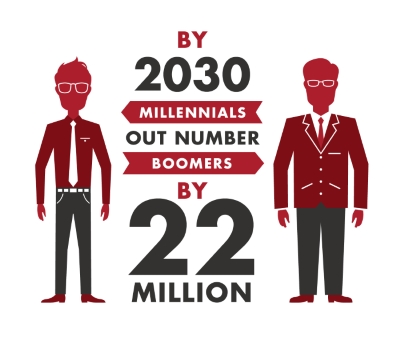As more and more Millennials enter the workforce in a professional capacity, it is very likely that at some point we will engage in B2B sales with a fellow millennial. I read an article in Inc. magazine today that talks about how Millennials have a desire to get to the point. The article points out that marketers are often trying to reach Millennials through what the author calls micromedia. The example is… “The 12 ways in which…,” or “5 things you need to know about…” This is the way that Millennials consume information, but the problem is, though we tend to skim things and look for the main points, we still desire a conversation and an experience. Marketers often assume that Millennials want everything in quick, concise, format. This is somewhat true, but at the same time Millennials are looking for the experience, the depth, and the conversation to go along with it. The author compares micromedia to “firecrackers” which go off and make a great show, but they are really not memorable. What marketers need to be striving for with Millennials is the “grand finale”
I think this can be applied to selling situations as well. Though we could assume that Millennials just want us to get straight to the point, it’s very important to create an experience for them. Millennials are looking for depth, we are not as shallow as our trumped up technology driven world may make us appear. If we sell to this, it may be a mistake. I bring us back then, to the art of the story. Stories provide depth and allow us, in some ways, to experience something. Stories are very important in a selling situation. Not just stories about the product, but even our own stories can be crafted in to help provide better and deeper engagement with our prospective customers. After all, we are selling ourselves as much as we are selling our products or services.
So, if you can create an experience for your Millennial audience, this will go much further than quick snippets and “firecrackers.” This can be the difference between boring your potential customer and developing organic engagement which may drive the sale. It’s apparent that selling really depends on your audience and their experiences. You have to craft your approach for your specific audience, whether that’s Millennials, or Baby-boomers.
The article from INC can be found here.

Good point about not being shallow in how you sell to millennials. I think it’s true that they aren’t as shallow as you would think and will like to see a company differentiate themselves with a social good instead of another useless add-on.
I love that you found a way to apply sales to a relevant cultural shift. Knowing the customer, what drives them, and how they communicate is essential to making effective sales. Often this is disregarded for B2B sales, but I think you hit on a strong point. It’s not just consumer sales that needs a personal touch anymore!
Warning: I’m about to present a different perspective. I write passionately because I’m writing in frustration with myself (a fellow Millennial).
I definitely agree that Millennials are always looking to “get to the point.” However, I think this is a sign of a deeply rooted inability to focus on anything else. This inability has developed from easy access to information and the breakneck speed of our culture. Everything is out there and everything is instant. It is out of sheer intellectual laziness that we refuse to direct our attention toward anything other than media that relays the most basic information, in the simplest of forms. As a result of our “focus” on the “important”, we often miss the truly important. Our “get to the point” attitude is postmodernistic and certainly not virtuous.
Nonetheless, this is the state of the market, and what we must sell to. I think Millennials, as human beings, have an unshakeable desire for story, but it may be difficult to rein-in their attention to get them there. If you can do so, I would say your sales tactics have a huge point of differentiation.
What do you think? Apologies for getting preachy.